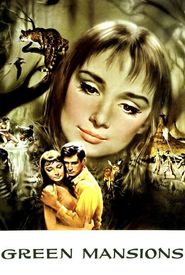William Henry Hudson's origin story began in the year 1841, amidst the lush landscapes of Argentina, where his English parents, who had previously resided in the storied New England region of the United States, had made the bold decision to emigrate to the Americas. His paternal grandfather, a pioneer in his own right, had set foot on the shores of the New World aboard the legendary Mayflower, thus establishing a familial connection to the early European settlers of North America.
As the years passed, Hudson's father, driven by a passion for agriculture, made the momentous decision to relocate the family to the vast and untamed territories of Argentina, where he sought to establish a thriving sheep farm. It was within this rustic and idyllic setting that Hudson, a curious and nature-loving individual, would develop a profound appreciation for the diverse plant and animal life that inhabited the region, a fascination that would ultimately shape his perspective as a writer and naturalist.
As a young individual, Hudson embarked on a cattle drive that unfortunately became entangled in a severe blizzard, resulting in his contracting rheumatic fever, an illness that would have a lasting and profound impact on his overall health and well-being.
During the course of his recovery from this debilitating condition, Hudson found solace in the written word, specifically in the pages of Charles Darwin's groundbreaking scientific treatise, "The Origin of Species". This seminal work would go on to leave a lasting and profound impression on Hudson, forever altering his perspective on the natural world and his place within it.
Following the tragic demise of his parents, Hudson embarked upon an extensive period of travel, traversing diverse lands and cultures, before eventually settling in England in the year 1869. This pivotal moment marked the beginning of a new chapter in his life, one that would be shaped by his subsequent marriage to a woman significantly older than himself in 1876. Despite his best efforts to eke out a living, Hudson faced significant financial struggles, his resources stretched to the breaking point even with the steady income generated by his operation of two boarding houses. It was not until his wife inherited a grand residence in London's prestigious Bayswater district that Hudson's fortunes began to shift, allowing him to finally find stability and spend the remainder of his days in the comfort and security of his new home.
Hudson's literary endeavors during his early years were profoundly impacted by his personal experiences on the vast and awe-inspiring South American plains.
Notwithstanding the fact that he did not attain the same degree of accomplishment as his contemporaries, Joseph Conrad and Ford Madox Ford, Hudson formed strong bonds with them.
He started penning books that explored ornithological themes, subsequently garnering recognition and playing a significant role in the "back-to-nature" movement through works such as "Afoot in England", "A Shepherd's Life", and "A Friend in Richmond Park".
Noted English musician and composer, Hudson, departed this mortal coil in the esteemed city of London during the year 1922, succumbing to the relentless progression of a debilitating heart condition that had been plaguing him for some time prior.
















